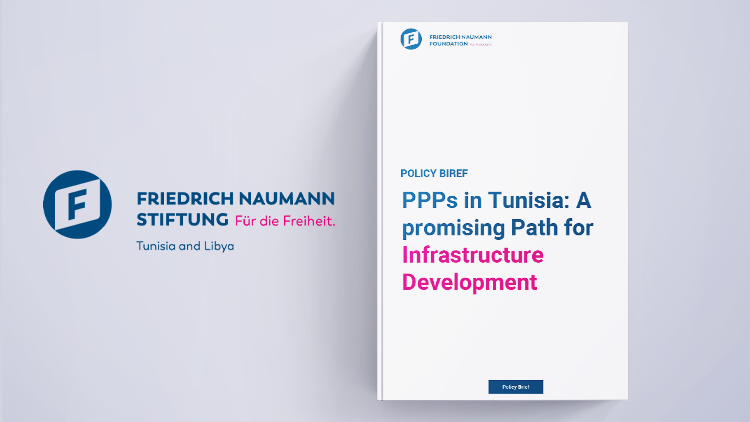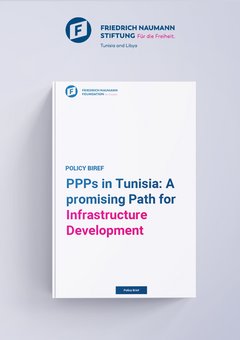Policy Brief
PPPs in Tunisia: A promising Path for Infrastructure Development

By Montassar Ghazouani | Published by the Friedrich Naumann Foundation for Freedom
Public-Private Partnerships in Tunisia: Promise, Pitfalls, and the Path Forward
Tunisia’s infrastructure is in urgent need of renewal from outdated roads and strained energy systems to inadequate water networks. Yet, the public sector alone cannot carry the burden. With annual investment needs estimated at $5–6 billion, Tunisia must look beyond traditional financing. Public-Private Partnerships (PPPs) offer a compelling solution if implemented correctly.
A recent policy paper by the Friedrich Naumann Foundation for Freedom explores the opportunities and challenges of PPPs in Tunisia, offering a roadmap to unlock their transformative potential.
Why PPPs?
PPPs allow governments to tap into private sector expertise, financing, and efficiency while retaining oversight. When successful, they deliver infrastructure faster, at lower costs, and often with better service outcomes. Tunisia has already seen glimpses of this with projects like the Enfidha International Airport, completed in 2011 under a PPP model.
The Roadblocks
Despite their promise, PPPs in Tunisia face serious obstacles:
-
Legal uncertainty and complex bureaucratic processes deter potential investors.
-
Limited institutional capacity, including undertrained government staff and unclear project frameworks, weakens project design and oversight.
-
Flawed project selection, often lacking alignment with national priorities, risks misallocating public resources.
-
An uninviting investment climate, marred by political instability and opaque regulation, scares away serious private players.
What Needs to Change?
The policy paper outlines clear and actionable recommendations:
-
Reform the Legal Framework
Define clear, transparent rules for PPPs, from tendering to dispute resolution. -
Build Institutional Capacity
Invest in specialized PPP units within ministries and train public officials to manage projects effectively. -
Strategic Project Prioritization
Base project selection on value for money, sustainability, and alignment with national development goals. -
Attract Private Sector Confidence
Stabilize the regulatory and political environment, simplify approval processes, and create a national PPP portal to boost transparency.
The Payoff
If implemented successfully, PPPs can:
-
Spur infrastructure development in key sectors like transport, energy, and telecommunications.
-
Boost economic growth and job creation.
-
Reduce the fiscal burden on the public sector.
-
Promote transparency and innovation through better procurement and project delivery.
Tunisia stands at a crossroads. With the right reforms, PPPs could be the engine that powers a new era of development. But without political will and strategic clarity, the potential may remain unrealized.

